Review of Pianist, The
Introduction
Wladyslaw Szpilman (Adrian Brody), a young Polish pianist on Warsaw radio, plays the delicate, turbulent music of Frederic Chopin as the German bombs begin to rain down on September 23, 1939. What follows in Roman Polanski’s film is Szpilman’s own account of his war-time experiences; from his family’s traumatic deportation to the death-camps, to his desperate fight for survival in the crumbling ruins of the Polish capital. Szpilman’s survival, driven as much by luck as human ingenuity, leads eventually to the weary and starving Szpilman’s chance encounter with German officer Wilm Hosenfeld, whose empathy for the Jewish pianist gives the film its final, mercifully optimistic antidote to the pervasive horror.
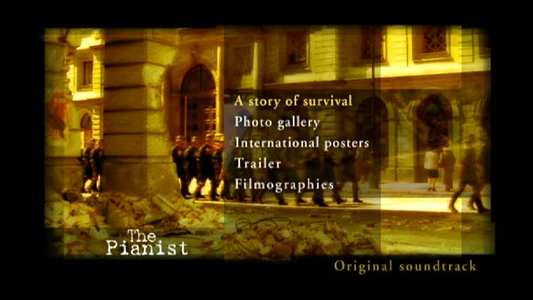
Video
Excellent, cinematographer Pawel Edelman’s images have a stark, full-bodied dynamism which is perfectly conveyed in this flawlessly detailed transfer. The clarity of the image allows the viewer to better appreciate the staggering effects work of Hans Seck’s visual effects team, and Allan Starski and Gabriele Wolff’s impeccable design of the sets and dressing of contemporary Polish locations.

Audio
Absorbing 5.1 audio.
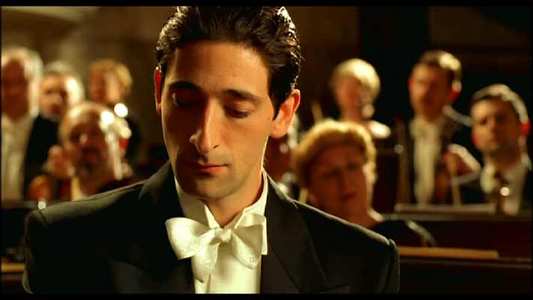
Features
The documentary on Disc 2, ‘A Story of Survival’, is as crudely structured as any PR piece, but it reveals enough intimate details about the production to make it worth while. Polanski is particularly eloquent when discussing the personal resonance of Spzilmann’s story with his own war-time recollections as a child living in the Krakow ghetto, and how those experiences influenced his making of the film. Adrien Brody adds some heartfelt anecdotes of suffering for the sake of his director’s art, whilst managing to remain a modest and impassioned presence. Meanwhile, there is a brief (French) trailer for the film, a soundtrack advertisement, a stills gallery and filmographies. A flimsy selection for our supplement-laden age, and certainly not deserving of a 2-Disc set.
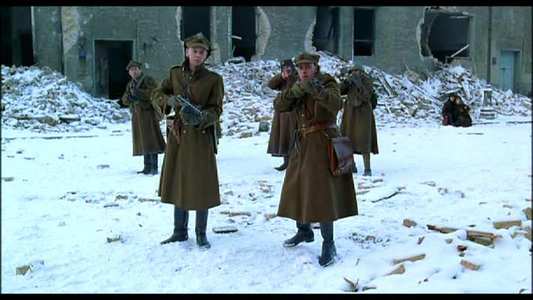
Conclusion
Polanski has remained largely faithful to the spirit and tone of Szpilman’s memoir, although there isn’t much of the author’s scarcely veiled bitterness or seething anger that naturally accompanied his account (it was published only a year after the close of the war). The director manages to capture the material’s distant, astonished journalistic gaze: the most memorable recurring shot in ‘The Pianist’ is Szpilman’s point-of-view as he peers unblinkingly at the appalling brutality occurring with such a savage remove outside of his window. Brody, in a performance of remarkable subtlety and emotional reticence, portrays Szpilman as an intelligent, aloof hybrid of passion and passivity, growing increasingly detached by the casual futility of his plight. Brody turns scenes of endless day-to-day groping survival into a mesmeric act of human survival through dumbfounded emotional repression. However, despite the inherent subjectivity of the piece, other characters manage to make their fleeting presence felt: Maureen Lipman as Spzilman’s mother, Thomas Kretschmann as Hosenfeld and Ed Stoppard as Spzilman’s brother, Henryk, deliver startling performances of internal turmoil and external intensity.
Whilst Polanski’s Movie Brat colleague Steven Spielberg was never able to fully rein in his emotional didacticism in that other epic Holocaust Oscar-grabber ‘Schindler’s List’, Polanski penetrates deeper, with a war-correspondent’s cold, ascetic attention to detail, to reality. Indeed, ‘The Pianist’ is that rare film in which the horror of the holocaust is permitted to speak for itself, without an applied ethical perspective, without a pervasive, caustic sentiment of righteous moral outrage. Whilst the relentlessly grim subject matter threatens to numb the viewer into indifference, Polanski manages instead to evoke the futility that bred indifference amongst the war-ravaged populace. His typically anatomical direction works perfectly to diffuse his subtle, intrinsically assured filmic poetry. ‘The Pianist’, like all great art about terrible things, is horribly beautiful in its stark simplicity.
Shivering and gaunt, hearing music of haunted frailty as if from the ether, Szpilman listens to the alluring siren call of his passion, his hope, and ‘The Pianist’ develops the unforgettable presence of a haunting nightmare, an appalling dream. There is a moment where Szpilman, after he escapes a desiccated hospital, appears to be the only man on Earth, and it is an astonishing moment, one of apocalyptic horror and grave, awesome realization. The simplicity, the coldness, and the passivity of Polanski’s vision achieves its purpose: to expose humanity for what it is, the cruelty it continues to perpetuate, and the redemptive drives that germinate alongside it. ‘The Pianist’s removes the glaze of artful interpretation, and reveals life’s tumultuous, devastating and inevitable dance of horror and hope.
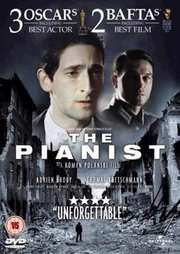





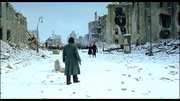
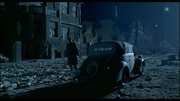
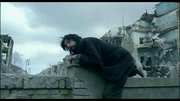


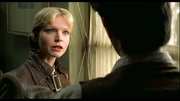
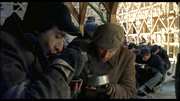
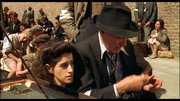
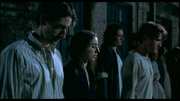
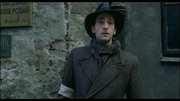

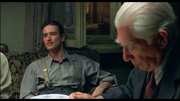
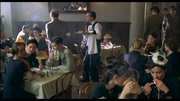


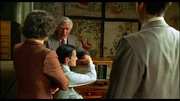
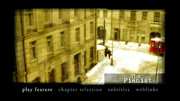
































Your Opinions and Comments
Be the first to post a comment!